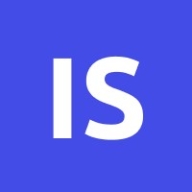

UserLock and Frontegg compete in identity management and security. UserLock has an advantage in pricing and customer support, while Frontegg offers superior features.
What features are offered by UserLock in comparison to Frontegg?UserLock provides robust identity management capabilities, ease of integration, and high reliability. Frontegg offers advanced security features, comprehensive management tools, and strong development support.
What areas of improvement can be found in UserLock in comparison to Frontegg?UserLock users mention a need for a more intuitive setup process and better reporting capabilities. Frontegg users suggest enhancements in product documentation and improvements in real-time monitoring.
How is the ease of deployment and customer service of UserLock in comparison to Frontegg?UserLock is praised for its simple installation and good customer service. Frontegg, while easy to deploy, sometimes requires more extensive configuration. Frontegg users report exceptional customer service with faster response times.
What setup costs and ROI can be seen with UserLock in comparison to Frontegg?UserLock offers competitive pricing and cost-effectiveness, yielding good ROI. Frontegg is more expensive upfront, yet users find its features justify the cost, resulting in good ROI as well.
| Product | Market Share (%) |
|---|---|
| UserLock | 1.1% |
| Frontegg | 0.6% |
| Other | 98.3% |
| Company Size | Count |
|---|---|
| Small Business | 8 |
Frontegg is a user management platform, designed for the Product-Led Growth (PLG) era. Frontegg provides blazing-fast integration of a powerful user infrastructure, designed to handle modern application use-cases.
Our platform supports app builders by covering all the way from fundamental authentication flows to the most advanced capabilities such as complex organizational structures (multi-tenancy), fine-grained authorization, API-token management, self-service admin portal for end-users, subscription enforcement, single-sign-on (SSO), and much more.
Frontegg’s interfaces are embedded as a UI layer within your app and becomes a customer-facing management interface for your end-users, both on the personal and workspace levels. Frontegg also powers-up your backend through rich SDKs supported in various languages and frameworks.
Pricing: Starts at $249/m
UserLock provides advanced Identity & Access Management (IAM) using Microsoft Active Directory, protecting hybrid and remote environments.
UserLock enhances security with multi-factor authentication, single sign-on, and context-aware access controls, tailored for Active Directory environments without requiring complex identity migrations. It offers real-time visibility for IT teams to monitor and control user sessions, effectively preventing account sharing and unauthorized access. With detailed auditing, UserLock supports compliance with standards like ISO 27001, HIPAA, and NIS2.
What features make UserLock valuable?UserLock is implemented in various industries to address specific demands for secure and seamless access management. In finance, it safeguards sensitive data through rigorous login authentication. Healthcare organizations use UserLock to maintain strict compliance with patient information security standards, while educational institutions benefit from its ability to manage and track access in complex network environments. With its flexible integration, UserLock supports industry-specific security protocols and operational needs.
We monitor all Authentication Systems reviews to prevent fraudulent reviews and keep review quality high. We do not post reviews by company employees or direct competitors. We validate each review for authenticity via cross-reference with LinkedIn, and personal follow-up with the reviewer when necessary.